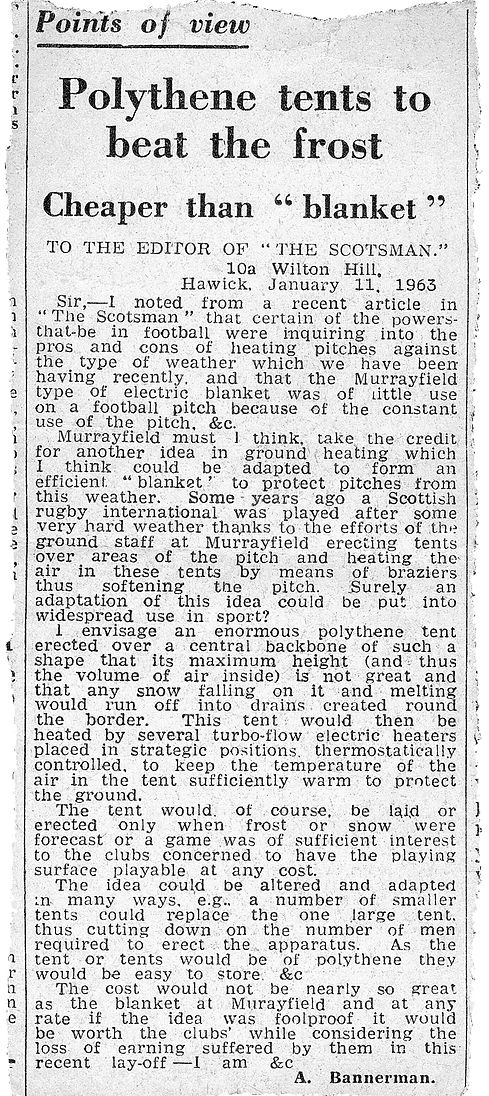Thomas, the frost magus
Tom was a night person at the best of times, a man with little regard for sleep, he just didn’t rate it, a man who’d pace away the small hours and still rise before dawn. In the week before a Murrayfield international, though, he would hardly sleep at all. He would sip it, graze its surface, but only for form’s sake. He ran entirely on worry.
He was up and out at all hours checking his thermometers – and he had loads of thermometers: air temperature thermometers, ground surface thermometers, soil temperature thermometers, deep subsoil temperature thermometers. He had thermometers in situ, he had sheds full of backup thermometers, he had them on and by the pitch itself, plus a duplicate set on the small patch of lawn by his bungalow – so that if he actually did go to bed he could rise every so often throughout the night and check ground temperatures without having to walk over to the stadium itself.
That was risky, of course, and not really to be advised, because conditions at pitch level within the stadium were exceptional – tragically, unwontedly, vexingly, the stadium was a frost lens. It captured cold air, which sank heavily, like icy syrup over the terracing steps, and oozed out over the pitch. Tom could almost hear it in the night, 200 yards away as he (pretended) to sleep.
And he had an uncanny instinct for frost. He could hear it in birdsong, in the way the dawn chorus becomes brittle and super clear; he could hear it in the silent openness of the skies, in the sparkling stars, in the ring of footsteps on a distant pavement. He could smell it in evening air, through the plumes of people’s breaths, yeasty with whisky and cigarettes after a party or a family gathering; he could smell it through the scent of women’s perfume and the muskiness in the folds of their fur coats as they said goodbye on the doorstep. Frost’s scent was a clean scent. An absence of scent.
Frost was a constant, a given. Tom could look across an undulating expanse of grass and tell you which areas would whiten first and which would be the first to thaw. On a golf course he’d stop, retrace his steps and, with his heel, tamp a stretch of ground (usually a barely visible gully, the faintest snaking fold in seemingly flat ground), sounding it, reading its history of compacted winter deadness even in daisy-strewn spring.
In the days counting down to a match I don’t suppose he actually needed the Met Office forecasts passed on to him from the SRU offices in the main stand. Or the regular, almost hourly outlook reports relayed to him throughout the day from RAF Turnhouse.
It was like D-Day and yet it was not like D-Day because D-Day, the one in 1944, could have been rescheduled.


